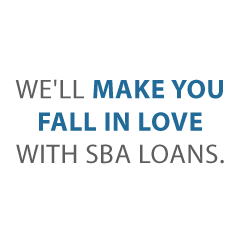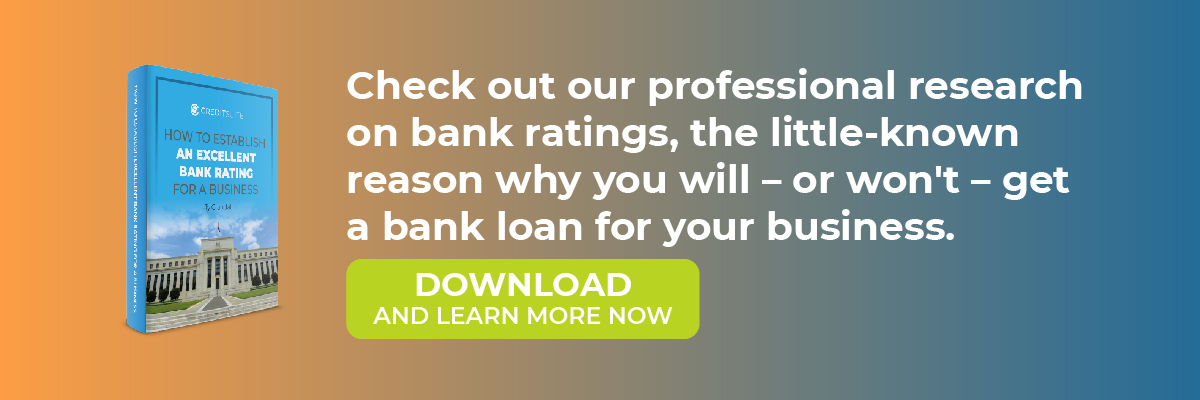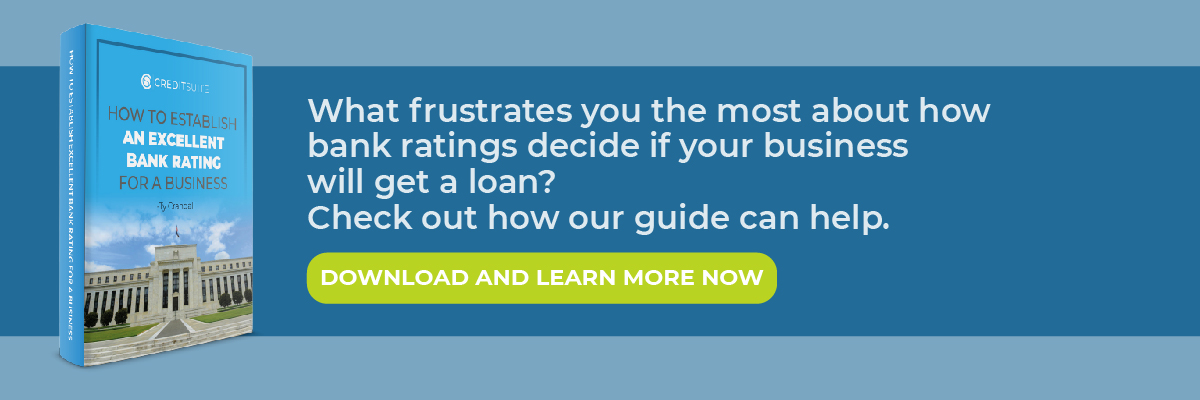We all love a good romance. I mean, falling in love is the stuff of many movies and books throughout the centuries. However, we don’t typically think of romance in relation to business funding. Honestly, it sounds a little silly. Still, when it comes to SBA loans, there are more than a few reasons to fall in love. Here are 5 of them just to give you a taste.
Keep in mind interest rates and other details can change. Check with your lender directly for the more up-to-date information.
5 Reasons SBA Loans Could be the Love of Your Life as a Business Owner
The Small Business Administration is, as its name states, designed specifically to be a hero to the little guys. Who doesn’t love a hero? Whether you need working capital or a natural disaster has struck, the SBA can swoop in and cause you to swoon.
Overall, there’s a wide range of products offered through SBA programs. For the most part, the SBA does not lend money directly. In contrast, they work through partner lenders to guarantee small business loans. As a result, they are able to leave the administration of the loans and disbursement of funds to those who do it on a regular basis.
We’ll make you fall in love with SBA loans with our top 5 reasons.
Reason #1: More Borrowers Qualify
SBA loans are small-business loans guaranteed by the Small Business Administration and issued by participating lenders, mostly banks. They can guarantee up to 85% of loans of $150,000 or less. Loans that are more than $150,000 they will guarantee up to 75%. The maximum loan amount they offer is $5 million.
Above all, this means that since borrowers do not have to guarantee the entire loan themselves, more are eligible for funding through SBA programs than they would be otherwise.
Who Can Get SBA Loans?
To be eligible for SBA loans, you do have to meet these qualifications.
- Your business must be for profit.
- Your business must be inside the US.
- Business owners must invest equity.
- All other financial options must be exhausted.
- Your business must qualify as a small business.
- Your business must be in an eligible industry.
Reason #2: Plenty of Knowledgeable Partner Lenders
There are SBA partner lenders virtually everywhere. There are a couple of ways to find one. First, you can contact your SBA district office. Better yet, use the SBA lender match option. It’s pretty handy. Basically, all you have to do is enter some general information about your business and what you need funds for. Accordingly, it matches you with a list of potential lenders that should meet your needs.
How Does the SBA Choose Lender Partners?
Surprisingly, not every lender gets to be a partner lender. The Small Business Administration has a couple of different lender partner programs.
Some loan programs are only available from certain types of lenders. For example, SBA 504 loans are only available through a bank, online lender, or a certified development company (CDC.) Community advantage loans are only available through community-based lenders like local banks and credit unions.
Regardless, all SBA lenders must meet certain criteria.
SBA’s Certified Lender Program (CLP)
To qualify to be a CLP, a lender must have some experience and meet certain standards set forth by the SBA. What does it mean for borrowers if their lender is a CLP? Basically, it means that the SBA is able to expedite the application by simply reviewing the credit decision of the lender rather than underwriting the loan itself.
SBA’s Preferred Lender Program (PLP)
Lenders in the PLP are more experienced and meet even more rigorous standards than CPL lenders. In fact, they have the ability to underwrite and set their own eligibility standards without the SBA needing to review the application at all.
Reason #3: Favorable Repayment Terms
One perk of SBA loans is that there is more time to pay them back. According to the Small Business Administration, the terms depend on how you want to use the funds.
For example, working capital loans, or funds you intend to use for daily operations, have a repayment term of seven years. However, funds for new equipment purchase have a term of 10 years. Furthermore, real estate loan terms extend even longer to 25 years. Of course, the longer the term the lower the interest. That means lower regular payments.
Reason #4: Better Interest Rates
Speaking of interest rates, because of the government guarantee, lenders are able to offer much more favorable interest rates than they would otherwise be able to. The exact rate is dependent upon the specific loan program for which you are applying. Still, it is almost always going to be less than it would be without the government guarantee.
Reason #5: SBA Loans Have Something for Everyone
There are many types of SBA Loans. As a general rule, there is something for pretty much any small business need or situation. Following are the most popular programs.
7(a) Loans
This is the Small Business Administration’s most popular loan program. One reason is, it offers federally funded term loans up to $5 million. In addition, the funds can be used for expansion, purchasing equipment, working capital and more. Banks, credit unions, and other specialized institutions, in partnership with the SBA, process these loans and disburse the funds.
The minimum credit score to qualify is 680. Also, there is a required down payment of at least 10% for the purchase of a business, commercial real estate, or equipment. Lastly, the minimum time in business is 2 years. In the case of startups, business experience equivalent to two years will do the trick.
Funds are available for a wide variety of projects, from working capital to refinancing debt. You can even buy a new business or real estate.
504 Loans
These loans are available up to $5 million and can buy machinery, facilities, or land. For the most part, they are for expansion. Private sector lenders or nonprofits process and disburse these loans. They especially work well for commercial real estate purchases.
Terms for 504 Loans range from 10 to 20 years. Unfortunately, funding can take from 30 to 90 days. They require a minimum credit score of 680, and collateral is the asset the loan is financing. Furthermore, there is a down payment requirement of 10%, which can increase to 15% for a new business.
Another requirement is that you be in business for at least 2 years, or that management has equivalent experience if the business is a startup.
Microloans
Microloans are available in amounts up to $50,000. They work for starting a business, purchasing equipment, buying inventory, or for working capital. Community based non-profits administer microloan programs as intermediaries. Unlike the others, financing comes directly from the Small Business Administration.
Interest rates on these loans are 7.75% to 8% above the lender’s cost to fund. Also, terms go up to 6 years. Similar to the others, they can take upwards of 90 days to fund. A minimum credit score of 640 is necessary for microloans, and the collateral and down payment requirements vary by lender.
SBA Disaster Loans
Disaster loans go up to $2 million. They are actually processed directly through the SBA. These loans are for small-business owners that have been affected by natural disasters. Terms go up to 30 years. The maximum interest rate is 4%, and you can apply for disaster loans directly at SBA.gov.
The minimum credit score for these loans is 660. Additionally, collateral is necessary if the loan goes over a certain amount. That amount is usually $25,000. For a military economic injury disaster, the amount that requires collateral is $50,000. Either way, a down payment is not necessary.
SBA Express Loans
These loans max out at $350,000. Moreover, they have a maximum interest rate of 11.50%. Terms range from 5 to 25 years. In contrast to the others, the SBA guarantee is less, at 50%. To qualify, your credit score must be above 680. Also, you must have a debt to service ratio of 1.1 or higher. If the loan is greater than $25,000, collateral may be necessary depending on the lender.
The turnaround for express loans is much faster. In fact, SBA takes 36 hours or less to give a decision. Not only that, but the necessary paperwork for application is less also. This makes express loans a great option for working capital, among other things, if you qualify.
SBA CAPLine 
There are 4 distinct CAPLine programs that differ mostly in the expenses they can fund. Each of them carries a maximum amount of $5 million. In addition, the interest rate for each ranges from 7% to 10%. Like many of the others, funding can take 45 to 90 days.
The four different programs are:
Seasonal CAPLines
This is financing for businesses preparing for a seasonal increase in sales.
Contract CAPLines
Financing for businesses that need funding to fill a contract.
Builder’s CAPLines
Financing for businesses taking on a real estate or construction project.
Working Capital CAPLines
Financing for businesses that are struggling with a short-term slump in sales.
For these, the minimum credit score to qualify is 680. However, there is no minimum time in business requirement unless you are getting a seasonal CAPLine. That one carries a one year in business requirement.
SBA Community Advantage Loans
This program is a pilot set to either expire or extend in 2020. Its purpose is to promote economic growth in underserved areas and markets. Consequently, credit decision makers overlook factors such as poor credit or low revenue if the business has the potential to stimulate the economy or create jobs in underserved areas.
Loan amounts range from $50,000 to $250,000 with a maximum interest rate of 11%. Terms range up to 25 years.
SBA Loans: The Application Process
Noticeably absent from this list of 5 reasons to love SBA loans is the application process. Every rose has its thorn, and SBA loans are no different. While they truly are a fabulous funding option for most small businesses, the application process is not as easy as some other loan processes.
Even though the government guarantee makes these loans great in a lot of ways, it is that same thing that makes applying for them a little more involved.
How to Apply for an SBA Government Loan
The main downside to SBA loans is that they have a lengthy and somewhat complicated application process. There is a lot of red tape involved, but understandably so considering it is the federal government and they are guaranteeing a huge chunk of the loan. Here’s how to start the process.
Gather the Information
The first thing you have to do is gather the information you will need. This includes:
- The SBA borrower loan information form
- Statement of personal history
- Personal financial statement
- Personal income tax returns for the previous 3 years
- Tax returns for the business for the previous 3 years
- Business certificate or license
- Business lease
- Loan application history
This list, along with links to forms and templates, is available at SBA.gov. Once you have this information, you can start looking for a lender. Either contact your local office or use the match tool mentioned above.
Remember, once you and the lender determine which loan program will work best for your needs, there may be additional paperwork. This is because each loan has its own set of requirements.
Other SBA Programs
In addition to those programs listed above, the SBA also offers these options that are designed more for specific groups.
Veterans Advantage
General-use business loans with no guarantee fee for majority veteran-owned small businesses.
International Trade
General-use financing for businesses actively involved in international trade or hurt by competition from imports.
Export Working Capital Program
Short-term working capital for exporters backed by invoices or other business assets.
SBA Loans: A Love Hate Relationship?
Overall, there are many reasons to fall in love with SBA loans. Still, they are not perfect. For example, SBA loans offer longer repayment terms and lower interest rates, but there is an extensive and complicated application process. There are low down payment requirements and a variety of loan programs, but the personal credit score requirement is high and there are strict conditions for approval.
Keep in mind, one benefit of SBA loans that is unique and often overlooked is the support some programs offer before, during, and even after the loan. This can be a huge benefit, especially for those startups with minimal experience.
Remember also, details such as interest rates and qualification requirements can change without warning. We update our information regularly, but be sure to double check with the SBA directly for the most current information.
SBA Loans: All Relationships Take Work
Don’t let the longer, more complicated SBA loan application process scare you away. For the most part, if you can get an SBA loan it’s a good idea to do so. They offer plenty of support through the longer application process, and the lower rates, lower personal guarantee, and better terms can only help you. Just take a look and see if you meet the SBA loan requirements.
In the long run, if you have the necessary credit score, this is one relationship that is worth working for.



